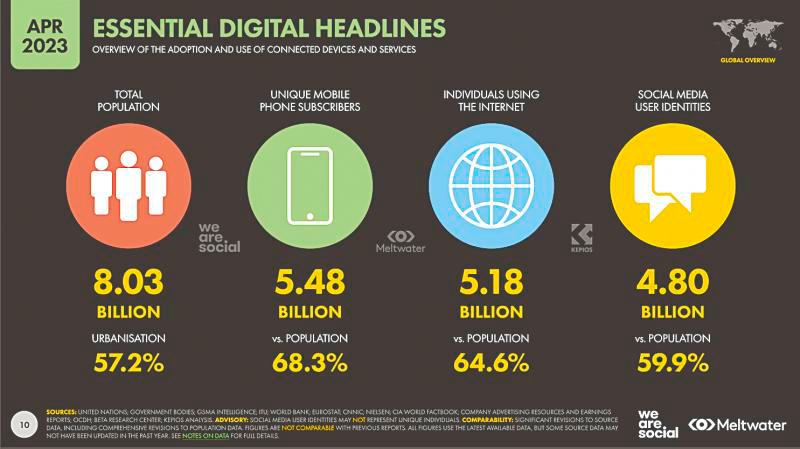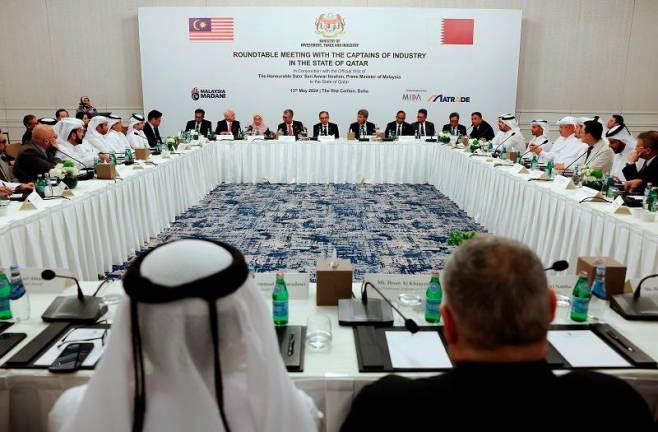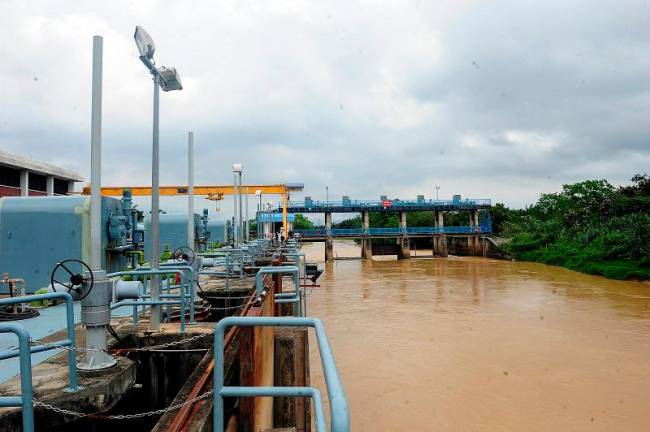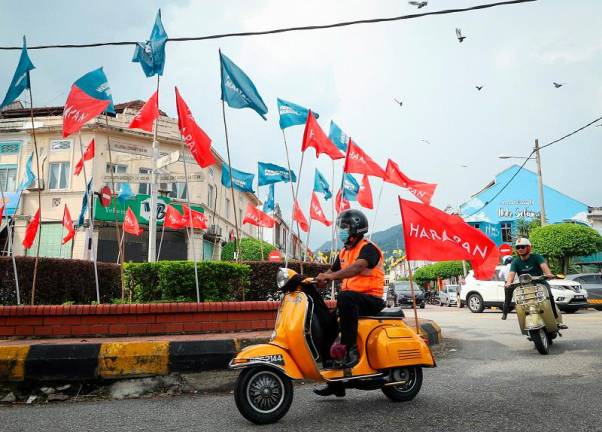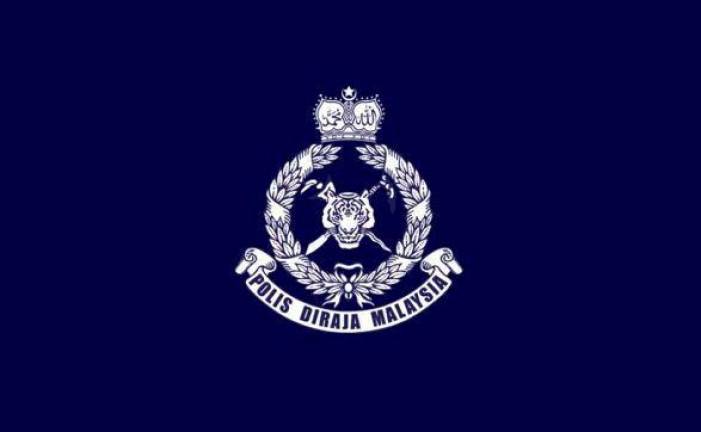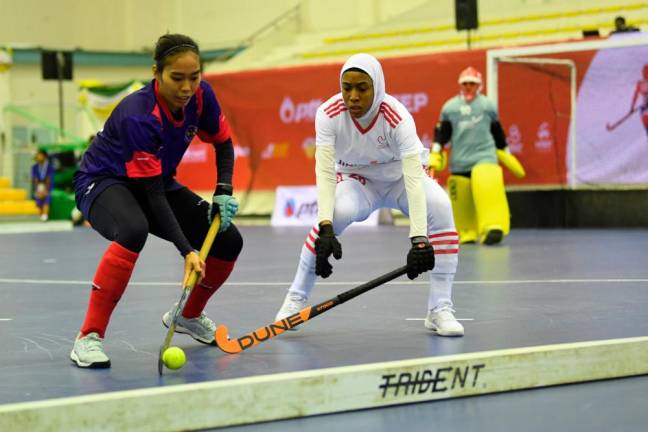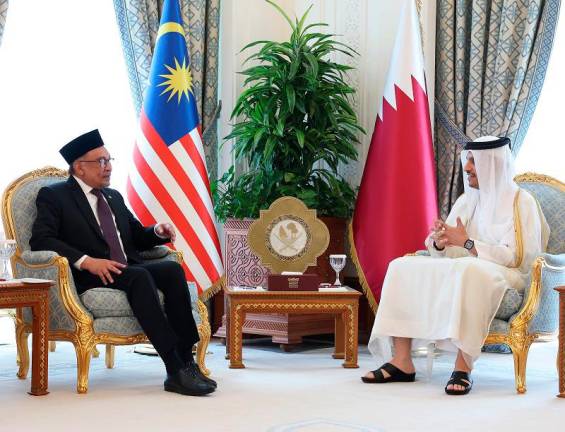IN recent years, there has been substantial growth in digital and emerging media technologies. The advent of these technological advancements has revolutionised the way we communicate, learn and coordinate, presenting unprecedented opportunities for expression and access to information. These platforms facilitate effortless information retrieval, help in sustaining social connections and enable the creation and sharing of content.
Our society is not only limited to consuming media, they can also become media creators, provided they possess the necessary skills to fully engage in this modern media landscape.
In this digital age society, the emphasis lies on generating and verifying content and information.
Many individuals spend a lot of time searching for news and information online, and digital platforms augment and influence the information-sharing process, positively and negatively. However, are we sufficiently discerning when it comes to evaluating media information?
In April, the global internet user count reached 5.18 billion, equating to 64.6% of the world’s population. Of this total, 59.9% were active social media users.
Findings from the Digital 2023 Global Statshot Report by Meltwater also revealed that 59.3% of internet users, aged 16 to 64, use the internet to search for information.
A policy brief on Information Integrity on Digital Platforms, published by the United Nations (UN) in June, highlighted that 75% of UN Development Programme country offices expressed concerns about information pollution based on a survey conducted in 2021.
One study analysing survey responses from individuals in 142 countries discovered that 58.5% of regular internet and social media users worldwide harbour concerns about encountering misinformation online. Notably, young people and those in lower-income brackets reported feeling especially vulnerable to this.
According to the UN, youths are the primary drivers of global connectivity, with 75% of individuals aged 15 to 24 having access to the internet in 2022, compared with 65% for the rest of the world’s population. This situation has created unprecedented opportunities for them to engage in communication, education and social interactions while also exposing them to new ideas and more diverse sources of information. Worldwide, a child logs onto the internet for the first time approximately every half a second. However, this increased online presence puts them at risk of encountering hate speech and harm, which can, in some cases, adversely affect their mental well-being.
The latest Unesco (UN Educational, Scientific and Cultural Organisation) Global Education Monitoring Report highlighted that only around half of 15-year-olds in OECD (Organisation for Economic Co-operation and Development) countries are able to distinguish facts from opinions.
As online platforms become more accessible to all for content creation and information sharing, the proliferation of disinformation campaigns and the spread of conspiracy theories have gained momentum. Consequently, it is imperative for us to intensify our endeavours in improving the critical thinking skills of individuals of all age groups in digital environments and to enhance their understanding of the algorithms that govern these spaces.
The lack of awareness about Media and Information Literacy (MIL) often leads individuals to assume that if something is on the internet, it is inherently truthful.
Given this circumstance, we need to equip people with MIL knowledge. Educators, in particular, play a critical role in ensuring that students graduate with the competencies required not only to critically evaluate media content but also to thoughtfully create and disseminate mediated messages.
Unesco identified MIL competencies as the ability to ethically and proficiently discover, evaluate and apply essential information; understand the roles of media and information providers; evaluate media content critically; and interact with these sources for self-expression, continuous learning and contemporary content generation.
It involves a range of competencies and skills necessary for navigating the vast and overwhelming digital landscape, making informed decisions and engaging with online content in a responsible manner.
Unesco’s Global Media and Information Literacy Week helps raise awareness of the need for an international effort towards helping all people become informed creators and consumers and is a crucial platform for rallying worldwide stakeholders to remind people of the importance of MIL’s agenda towards a more literate and sustainable society.
The theme for this year’s MIL Week, which will be held from Oct 24-31 is “Media and Information Literacy in Digital Spaces: A Collective Global Agenda.”
Unesco highlights that integrating MIL in digital spaces enables citizens to:
Understand their online rights and respect the rights of others, including privacy and digital rights, such as the freedom of expression and the right to access information;
Be more critical about how they use information, digital technologies and media and, thus, become more resilient to hate content and disinformation that stir conflicts;
Develop more agencies and autonomy to self-protect and to protect others, thus, staying safe online;
Appreciate how transparency and accountability of digital platforms and media can facilitate openness and dialogue in digital spaces;
Know how to access information online and what ethical steps to take when access is blocked;
Meaningfully engage in dialogue and promoting equality and non-discrimination online, which include gender equality and respecting the perspectives of others while advocating for peace and inclusive digital spaces.
In addressing these issues, governments, digital platforms, civil society, schools, libraries, academics and media must link up efforts.
The writer is a PhD candidate at Universiti Sains Malaysia. He is also a US Department of State Professional Fellow and Japan International Cooperation Agency Young Leaders Fellow. Comments: letters@thesundaily.com



